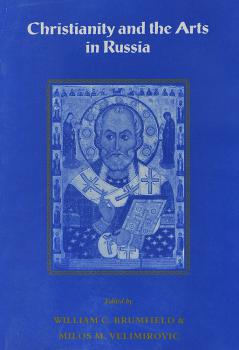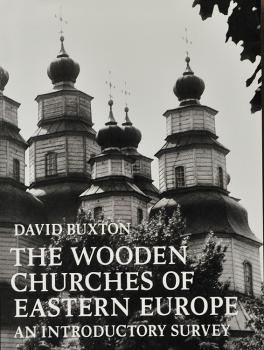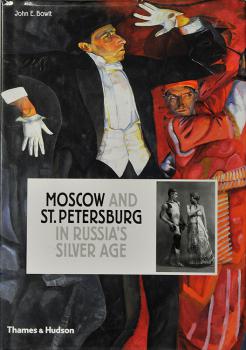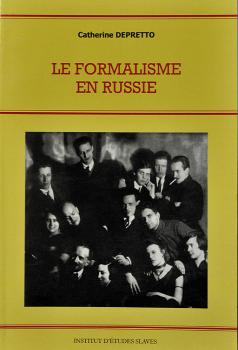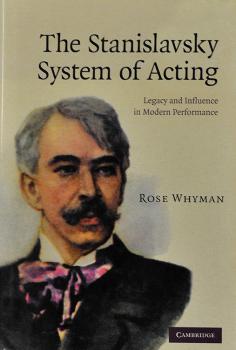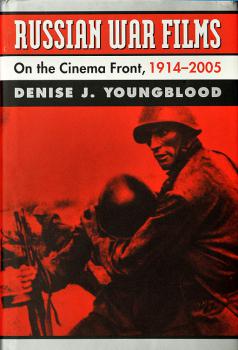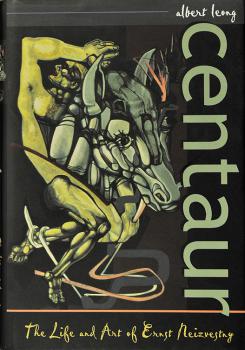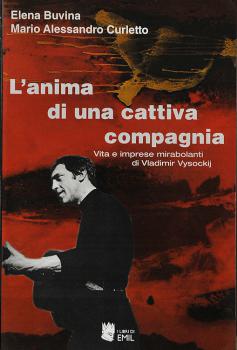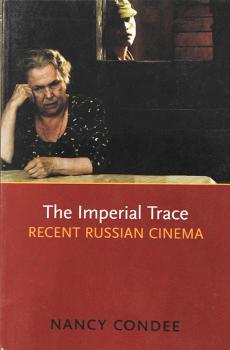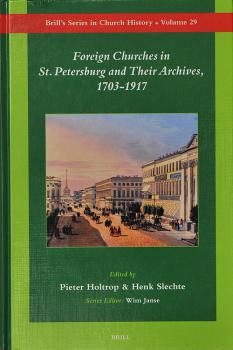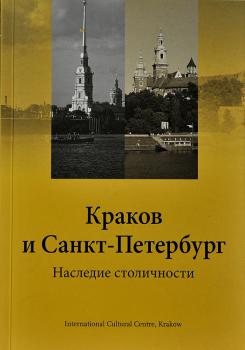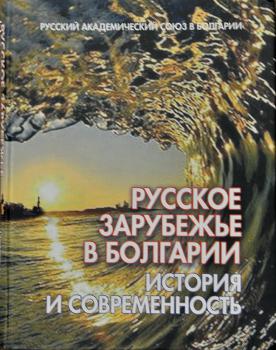In search of the Unknown Russia: "Rossica" and "Russian Abroad" in the collections of the National Library
- Books on Russian History from Ancient Times to the Present
- Books on Russian and Soviet Culture
Books on Russian and Soviet Culture
A large portion of the exhibition is devoted to Russian and Soviet culture. Among the books about Old Russian culture, particularly noteworthy are the collection of essays Christianity and the Arts in Russia published by Cambridge University Press / Christianity and the Arts in Russia. Ed. Brumfield W. Cambridge, 2008 /. It includes the proceedings of the symposium held in the Library of Congress, which was attended by both domestic and foreign experts. It includes the proceedings of the symposium held in the Library of Congress, which was attended by both domestic and foreign experts.
Among the topics that were embodied in the book are Old Russian music, iconography, architecture, chanting, arts and crafts. Northern Russian wooden architecture, one of the most striking examples of which is the ensemble of Kizhi, is researched in the extensive monograph by David Buxton Wooden Churches of Eastern Europe. An Introductory Survey / Buxton D. The Wooden Churches of Eastern Europe. An Introductory Survey. Cambridge, 2008 /.
The Canadian Slavist, Professor of the University of Ottawa Douglas Clayton, in his book Dimitry's Shade. A Reading of Alexander Pushkin's Boris Godunov / Clayton J.D. Dimitry's Shade. A Reading of Alexander Pushkin's Boris Godunov. Evanston, 2004 / proposes a new and one might even say 'revolutionary' understanding of the tragedy of the great Russian poet. The author departs from the traditional view of Boris Godunov as the work by a young disgraced poet who hated the Emperor Alexander I, doubted of the usefulness of the autocratic regime and flirted with atheism. In fact, the tragedy reveals that there was a visible gap between Pushkin and the Decembrists and shows the repudiation of his former liberal beliefs. The author demonstrates that the poet's views became more conservative, and he actually supported autocracy. In Boris Godunov, in Clayton's opinion, one can clearly see all three parts of the "theory of official nationality", which became the ideological doctrine of Russian emperor Nicholas I: Orthodoxy, Autocracy, Nationality.
The ideas of subjectivity in the works of the most prominent Russian writers of the 19th century, representatives of the Russian school of psychological realism - Ivan Turgenev, Fyodor Dostoevsky and LeoTolstoy were the subject of a special research of the Canadian Professor Donna Orwin Consequences of Consciousness: Turgenev, Dostoevsky, and Tolstoy / Orwin D.T. Consequences of Consciousness. Turgenev, Dostoensky, and Tolstoy. Stanford, 2007 /. The author examines the influence of Western ideas on the development of psychological prose of all the three Russian writers and shows how these ideas were altered according to Russia's specific character. To her mind, the great Russian writers well studied the limits of the subjective consciousness, and in this respect, their books have remained as popular now as before, and the Russian psychological prose has made a significant contribution to world culture, not only to literature but also to practical psychology.
We would like to draw your attention to the richly illustrated book by John Bowlt Moscow and St.Petersburg in Russia's Silver Age. 1900-1920 / Bowlt J. Moscow and St.Petersburg in Russia's Silver Age. 1900-1920. London, 2008 /. The author examines the visual and material culture of the two Russian capitals in the late 19th - early 20th centuries. It was a period of decline of the Russian empire, but also a time of surprising artistic revival. Most of the creative energy of that time was brought to life by the ideas of Symbolism. The book shows all aspects of Russian culture at that time: literature, art, theater, music and ballet. Along with the well-known figures of Russian culture of the period, the author dwells on the less-known cultural phenomena, such as experimental theater, painting by Nicholas Kolmakov, free dance of Isadora Duncan's followers. Many photos and materials have been published for the first time.
Russian literature of the late 19th - the first third of 20th century is investigated in the study of the French linguist Kathryn Depretto Formalism in Russia / Depretto C. Le formalism en Russie. Paris, 2009 /. The specialist in Russian culture of the 20th century, lecturer at the Sorbonne, Depretto gives not so much consideration to the history of the movement and its main ideas as the works of the people who created Russian Formalism. These are Yuri Tynyanov, Viktor Shklovsky, Roman Jakobson, Eugene Polivanov, Boris Yarkho, Gregory Winokur. In addition, the author traces the influence of the ideas of the formalism on such well-known poets such as Vladimir Mayakovsky, Yesenin, Osip Mandelstam, Boris Pasternak and Velimir Khlebnikov. At the end of the book is a list of books and articles on Russian formalism, published after 1990.
The Monograph by Catherine Ciepiela The Same Solitude: Boris Pasternak and Marina Tsvetaeva / Ciepiela C. The Same Solitude: Boris Pasternak and Marina Tsvetaeva. Ithaca, 2006 / tells the reader about one of the most interesting episodes in the history of Russian literature of the 20s-30s of the 20th century - about the correspondence between the two great Russian poets of the twentieth century. In 1922, Marina Tsvetaeva left the Soviet Union, and Boris Pasternak discovered her poetry and sent her an enthusiastic letter. From that moment they began their correspondence which had a great influence on the works of both.
Of great interest is the book by Rous Whyman The Stanislavsky System of Acting. Legacy and Influence in Modern Performance / Whyman R. The Stanislavsky System of Acting. Legacy and Influence in Modern Performance. Cambridge, 2008 /. As the famous Russian theater director, actor and educator, Stanislavsky founded the famous system of acting that has been very popular throughout the world. The author, lecturer of the University of Birmingham, worked in various theaters for a long time, and therefore has its own acting experience. Based on sources that became available recently in Russia, the author shows how the Stanislavsky System evolved under the influence of scientific discoveries in his life and compares his methods to the methods of Vsevolod Meyerhold, Michael Chekhov and Eugene Vakhtangov.
In 2009, in Italy, there was issued one of the most complete biographies of Vladimir Vysotsky in a foreign language Soul of the Bad Society. Life and the Amazing Actions of Vladimir Vysotsky / Buvina E., Curletto M.A. L'anima di una cattiva compagnia. Vita e imprese mirabolanti di Vladimir Vysockij. Bologna, 2009 /. Its authors Elena Buvina and Mario Bouvines Curletto, lecturers of Italian universities, describe an epic deed of the outstanding Russian actor, poet and singer of songs, who became the symbol of the era, and show its influence on Italian culture.
Readers will be interested in the detailed monograph The Life and Art of Ernst Neizvestny by the American Professor Albert Leong Centaur / Leong A. Centaur: the Life and Art of Ernst Neizvestny. Lanham, 2002 /. The book tells us about the striking Soviet and Russian sculptor and art theorist who defied the Soviet system and forced to emigrate, and, ultimately, received international recognition. The author collected the material for a book for more than 10 years. He visited the cities associated with works of the master, met many people whom the sculptor knew, and worked in archives that had been formerly closed for researchers.
Somel works are dedicated to Russian and Soviet cinema. Professor of the University of Vermont Denise Youngblood devoted himsel to the little-studied but very popular genre in the domestic film - war film. Her book is called Russian War Films: ON the Cinema Front, 1914-2005 / Youngblood D. Russian War Films: Оn the Cinema Front, 1914-2005. Lawrence, 2007 /. It covers the more than 160 films on the various wars of the twentieth century, beginning with WWI and ending with the Chechen one, and shows how politics and ideology influenced the cinema. Nevertheless, she must admit that the Soviet filmmakers were not mere puppets in the hands of the authorities and often broke through the bounds of the official ideology, creating movies in the spirit of the Hollywood blockbuster. The book makes a significant contribution to understanding the rich cinematic tradition of Russia, and provides a fresh look at familiar films.
Nancy Condee, in his book Imperial Trace: Recent Russian Cinema / Condee N. The Imperial trace: Recent Russian Cinema. Oxford, 2009 / surveys the evolution of Russian cinema during recent decades. Separate chapters are devoted to works of such masters as Nikita Mikhalkov, Kira Muratova, Aleksandr Sokurov, Alexei German. Despite the dissolution of the USSR, to the author's mind, the imperial attitudes persist in contemporary Russian cinema.
Several books are devoted to the history and culture of St. Petersburg. First of all, we would like to mention a collection of articles Foreign Churches in St.Petersburg and Their Archives, 1703-1917 published by the renowned publisher Brill Netherlands / Foreign Churches in St.Petersburg and Their Archives, 1703-1917. Leiden, 2007 /. The book was prepared by Russian and foreign experts and celebrated the 300 year anniversary of St. Petersburg.
Proceedings of the international conference held in St. Petersburg on October 3-4, 2008, are presented in the book Krakow and St. Petersburg is Heritage of Capitalness / Krakow, 2009 /. The authors discuss the so-called syndrome of "fallen capitals" and try to answer the question whether the royal Krakow and imperial Petersburg are currently places of nostalgia and complexes, or rather sites of excitement and aspirations, where legacy of capitalness is an important potential for expansion.
The books published in Russian language in foreign countries concluded the exhibition. Their authors are our compatriots living outside their homeland, as the fate willed. Russian emigre literature is extensive and well-represented in the collections of the NLR. Much of this literature are the books created by the first wave of emigrants. They were shown at exhibitions many times, and, in 1991, the catalogue was even published. The recent publications are already associated with the emigration in the last decades and the disintegration of the Soviet Union. Someone just went abroad, for example, to the U.S. and Israel, and someone found themselves in the newly formed states. These are Igor Shestakov, Yuri Okunev, Vladimir Rott, Vladimir Krivonos, Mark Sokol, Arkady Chudnovsky, Victor Gene, and many others. Here you can see works of prose and poetry collections, memoirs and philosophical essays, books on history and art. Special attention should be paid to new publications on the history of Russian emigration such as House in Exile. Essays on Russian Emigration in Czechoslovakia 1918-1945. / Prague, 2008 /, Russian abroad in Bulgaria: the Past and Present / Sofia, 2009 /, Russian Emigres and the Russian Writers in Estonia 1918-1940 / Tallinn, 2002 /.
